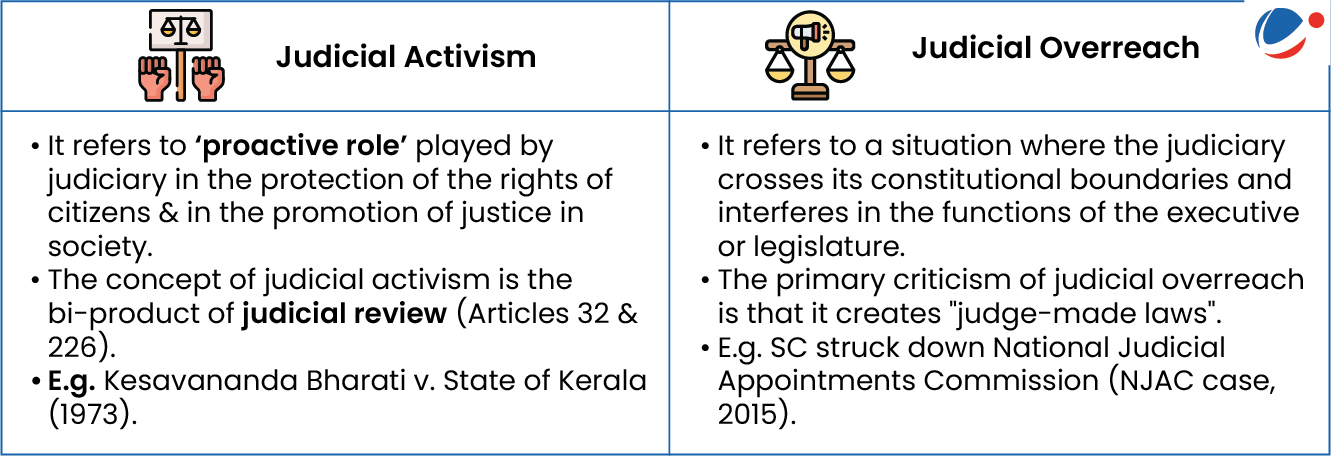The Vice President criticized the judiciary for overstepping its constitutional boundaries and attempting to function as a “super Parliament”.
- The criticism came in response to the Supreme Court's recent ruling that set a three-month deadline for the President to decide on bills forwarded by state governors and invoked Article 142 to deem the 10 pending bills as having received assent.
- He also criticized Article 142 of the Indian Constitution as a "nuclear missile against democratic forces, available to the judiciary 24x7."
What is Article 142?
- Article 142 enables the SC to ‘pass any decree or make any order as is necessary for doing complete justice in any cause or matter pending before it’.
- Originally envisioned as an extraordinary remedy, it was meant to fill gaps where laws were silent or justice would otherwise be denied.
- Example: Bhanwari Devi and Ors. vs State of Rajasthan (2002), the SC provided ‘Vishaka Guidelines’.
Concerns about Article 142
- Subjective Interpretation: "Complete justice" under Article 142 lacks a clear definition, allowing broad judicial discretion and potential misuse.
- Judicial Overreach: It allows the judiciary to step into domains traditionally reserved for the legislature or executive.
- Against separation of powers: It blurs the line between judicial activism and judicial legislation, raising concerns about violating ‘doctrine of separation of powers.





